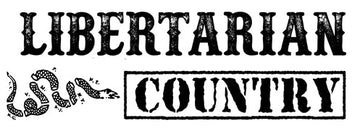Many people agree the government is bloated, intrusive, and often abusive — but some add another twist: “Employers are just as bad.”
It’s a claim gaining traction online, especially among frustrated workers. But is it true? Are bosses really on the same moral level as a government that can fine, imprison, and even kill with legal immunity?
In this article, we break down the differences between workplace authority and state coercion, and why comparing the two misses the mark.
The Employee Experience: Real Frustrations, Real Constraints
Anyone who has ever worked a rigid job knows the frustrations:
-
Being told when you can eat
-
Being told when you can go to the bathroom
-
Being ordered around by a manager
-
Being disciplined like a child
-
Being locked into someone else’s schedule
These experiences resonate with millions of Americans. There’s a reason workplace memes go viral. Being stuck in a routine you didn’t design can feel oppressive. Many people feel trapped between financial necessity and jobs that drain them.
But while these frustrations are real, they do not make employers equivalent to the government.
Voluntary Exchange vs. Government Coercion
The core libertarian distinction comes down to this:
Working for an employer is voluntary. Obeying the government is not.
If you refuse to work for an employer, you can walk away. They cannot:
-
Fine you
-
Jail you
-
Seize your property
-
Send the police to your home
-
Use force against you
-
Kill you and call it “justified”
A government can do all of those things — and often does.
Employers operate through consent.
Government operates through coercion.
Comparing the two is like comparing a breakup to an arrest: one is unpleasant, the other life-altering.
“But You Need Money to Survive” — Is That Coercion?
Some argue that because you must work to survive, the employer has coercive power. But this confuses economic necessity with political force.
Economic pressures come from reality.
Government pressures come from compulsion.
An employer must earn your participation through wages.
A government does not need your agreement to tax, regulate, or punish you.
If every employee quits, the business collapses.
If every citizen refuses taxation, the government escalates force.
The power dynamic is fundamentally different.
Government Power Reaches Every Part of Life
Employers influence your life on the clock.
Government influences your life around the clock.
The government controls:
-
What you can legally own
-
What taxes you must pay
-
How much of your income you keep
-
What substances you’re allowed to use
-
What rules apply to your home, property, business, travel, and speech
-
What permits you must obtain
-
What medical choices are restricted or forced
The government has total authority over your life through law — backed by punishment.
Employers do not have this scope of power.
Why Do Some People See Employers as “Just as Bad”?
For many people, the workplace is the only place where they feel controlled daily. Their boss becomes the face of “authority,” even though the boss cannot legally harm them.
Workplace resentment gets misdirected toward private actors instead of the true monopolizer of force.
Final Verdict: Employers Are Not Equivalent to the Government
Are employers sometimes strict, annoying, or unfair? Absolutely.
But they are not the moral equivalent of a state that can:
-
fine you,
-
imprison you,
-
confiscate your property,
-
destroy your livelihood,
-
or use lethal force with legal immunity.
One relationship is based on choice.
The other is based on compulsion.
From a libertarian standpoint, the difference isn’t small — it’s everything.
Fight for your right to party in style! 👇



